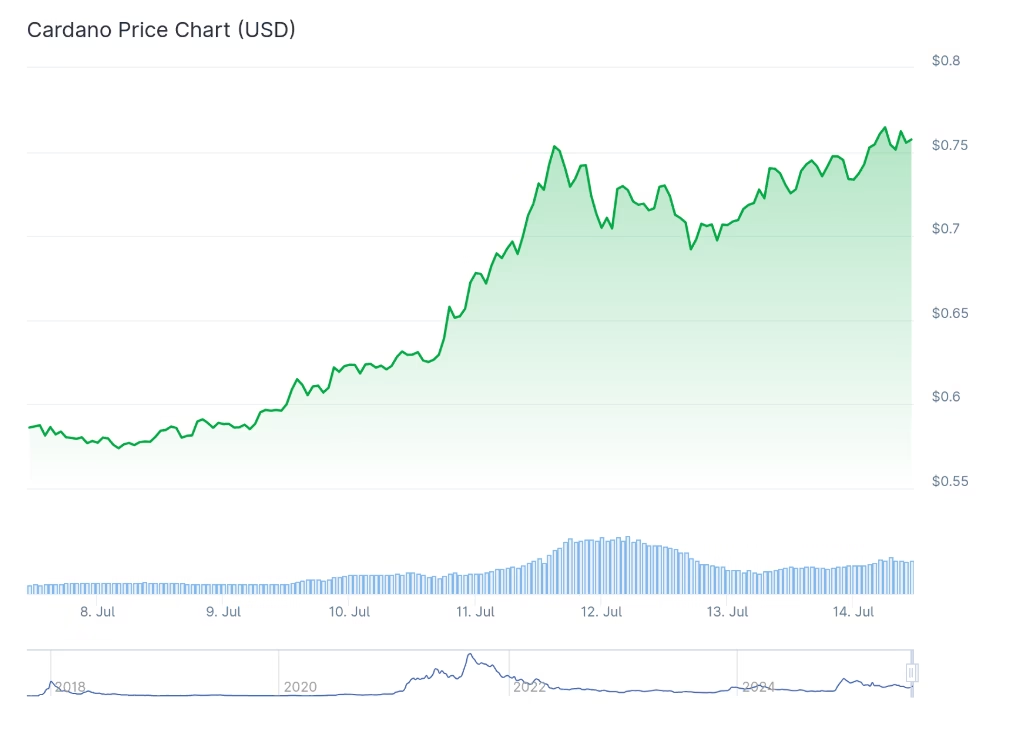- Cardano (ADA) has surged 26% recently, driven by rising network activity and strong technical indicators.
- Analysts expect ADA to break key resistance at $0.75 and potentially reach $1.20 or higher soon.
Cardano (ADA) has rallied 26% in the past week, breaking out from months of bearish price action. This surge is fueled by rising network activity and strong technical signals, driving optimism for ADA to reach $1.20 or higher.

Cardano Network Activity Fuels Price Rally
The recent Cardano price surge is supported by increased network usage. Daily active users reached 27,000, the highest since late May, while daily transactions topped 38,000. This uptick shows growing real-world use of the ADA blockchain, which often leads to higher demand and price gains.
Technical Indicators Signal Continued Uptrend
Technical data for Cardano is bullish. The Average Directional Index (ADX) stands at 27.64, confirming a strong trend, while the Money Flow Index (MFI) of 73.64 indicates increased buying pressure. A bullish crossover of the 50-day and 200-day moving averages also suggests further upside.
However, Cardano faces resistance at $0.7468, a critical level it must hold to maintain momentum. If ADA clears this hurdle, analysts forecast prices could climb to between $0.95 and $1.22.
Institutional Support Boosts Cardano Outlook
Institutional interest is growing as well. Grayscale’s Digital Large Cap Fund, which holds 0.8% Cardano, recently faced an SEC suspension. Grayscale has appealed, and the outcome could impact investor confidence in ADA and similar altcoins.
What to Watch for Next
While 24-hour trading volume has declined slightly, Cardano’s fundamentals and technical signals remain strong. Holding above the key resistance of $0.7468 is vital for sustaining the rally. If momentum continues, ADA could reach new highs in the coming weeks.
ALSO READ:Ethereum Price Breaks $3,000 Resistance as Bull Flag Signals $3,834 Target
DISCLAIMER:
The views and opinions expressed herein are solely those of the author and do not necessarily reflect the views of the publisher. The publisher does not endorse or guarantee the accuracy of any information presented in this article. Readers are encouraged to conduct further research and consult additional sources before making any decisions based on the content provided.